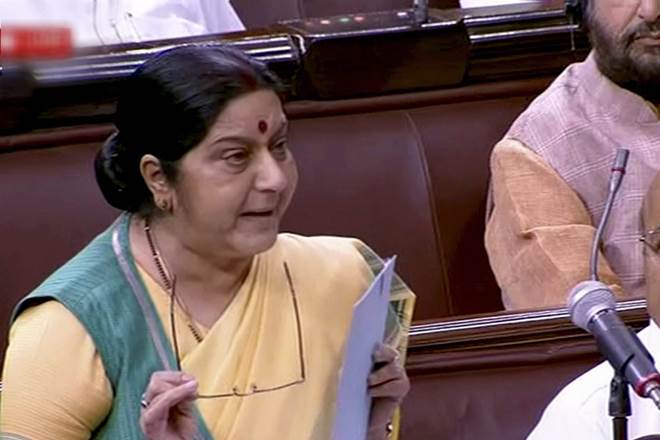 Nepal Foreign Affairs (KATHMANDU, 4 August 2017) – Indian External Affairs Minister Sushma Swaraj
Nepal Foreign Affairs (KATHMANDU, 4 August 2017) – Indian External Affairs Minister Sushma Swaraj
on Thursday has said that a mutually acceptable solution would be found through talks on the Doklam border stand-off. She also denied war at the border.
MinisterSwaraj, while speaking on the disputed Doklam and other foreign policy issue in the Rajya Sabha, said India is engaged with China on the issue and advocated patience. According a report filed by PTI, she said India is engaged with China to resolve differences, not only on the stand-off at Doklam but all matters like border dispute, Nuclear Suppliers Group (NSG) and the blocking of UN sanctions against Jaish-e-Mohammad terror outfit chief Masood Azhar.
She was replying to a discussion on “India’s foreign policy and engagement with strategic partners” during which members voiced concern over the stand-off and raised questions over India’s policy. She said “Our relations with China have recently come under renewed focus due to developments in the Doklam area in the Sikkim sector close to the India-China-Bhutan tri-junction boundary.”
She further added “Our concerns emanate from Chinese action on the ground which have implications for the determination of the tri- junction boundary point between India, China and Bhutan and the alignment of India-China boundary in the Sikkim sector,”.
”Patience and control on comments are key to resolving problems. We are maintaining patience and controlling comments,” she said. “War is not a solution to anything. Even after war, there has to be a dialogue. So, have dialogue without a war… Patience, control on comments and diplomacy can resolve problems,” She said.
In response to questions, she said military readiness is always there as the military is meant to fight wars. “But war cannot resolve problems. So wisdom is to resolve diplomatically,” the external affairs minister asserted, PTI reports.
Expressing confidence that the issue can be resolved through bilateral talks, Swaraj said, “India always believes that peace and tranquility in the India-China border is an important pre-requisite for smooth development of our bilateral relations.”
She said the Chinese side also, in their recent document published on the website of their Foreign Ministry, had expressed commitment to maintaining peace and tranquility in the India-China border areas.
“We will continue to engage with the Chinese side through diplomatic channels to find a mutually acceptable solution on the basis of the Astana Consensus between our leaders,” she said adding that India would continue to maintain close consultation and coordination with Bhutan government.
Giving details of the issue, she said both the aspects of tri-junction points and India-China boundary alignment in the Sikkim sector had been earlier addressed in a written common understanding reached between the Special Representatives of India and China on the boundary question in December 2012.

